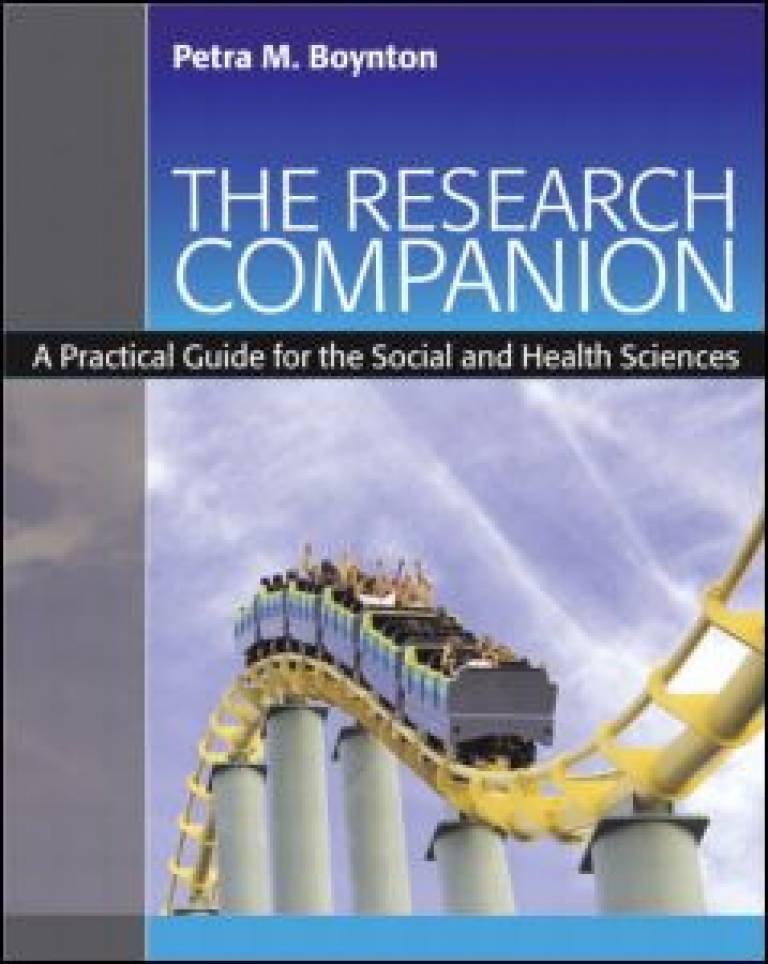The Research Companion
11 October 2005
Dr Petra Boynton (UCL Primary Care and Population Sciences) has published an interactive guide to help researchers through the entire research process from planning to publicising results.

Born out of the lack of practical information on the research process, 'The Research Companion' is the first book to specifically deal with issues around researcher safety and wellbeing. Dr Boynton said: "No other methods/research book has ever done this, yet it should be core to any book on methods where we're encouraged to work with the public."
Aimed at students, researchers and tutors in the health or social sciences, the book is full of personal experiences from researchers, checklists and tables to make all areas of study easy. Already a bestseller for Psychology Press, the book outlines the different stages of research and provides practical solutions to help people work more confidently and effectively.
"The book contains exercises and links to resources, but also has its own online discussion forum, so people can link with other researchers around the world, share resources and ask for information and advice," said Dr Boynton. "Already we've got postgraduate students, academics and healthcare staff joined up from Africa, Eastern and Western Europe, India and China. Research is an ongoing process and often people don't feel empowered to talk to others about their work, or may be working in isolation."
"Research isn't actually all that difficult, but the traditional way it's taught makes it more complex than it needs to be. Most of the problems with it are about researchers not getting the right tuition. For example, students are taught statistical equations, but not how and when to apply for ethics approval, or are taught different methods but don't know how best to approach participants."
Dr Boynton was recently a joint winner of e-Tutor of the Year 2005 for her work on a groundbreaking online MSc programme within UCL Primary Care and Population Sciences.
To find out more, use the links at the top of this article.
Image: The Research Companion
 Close
Close

